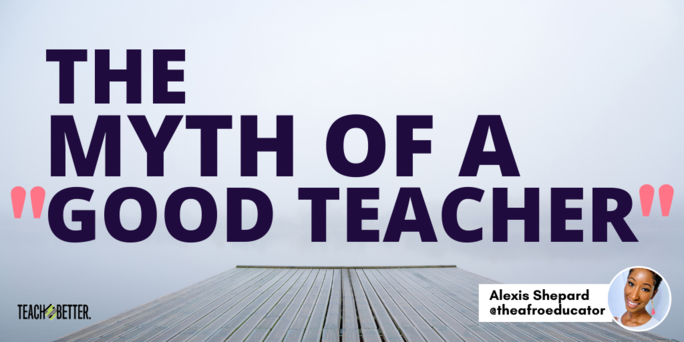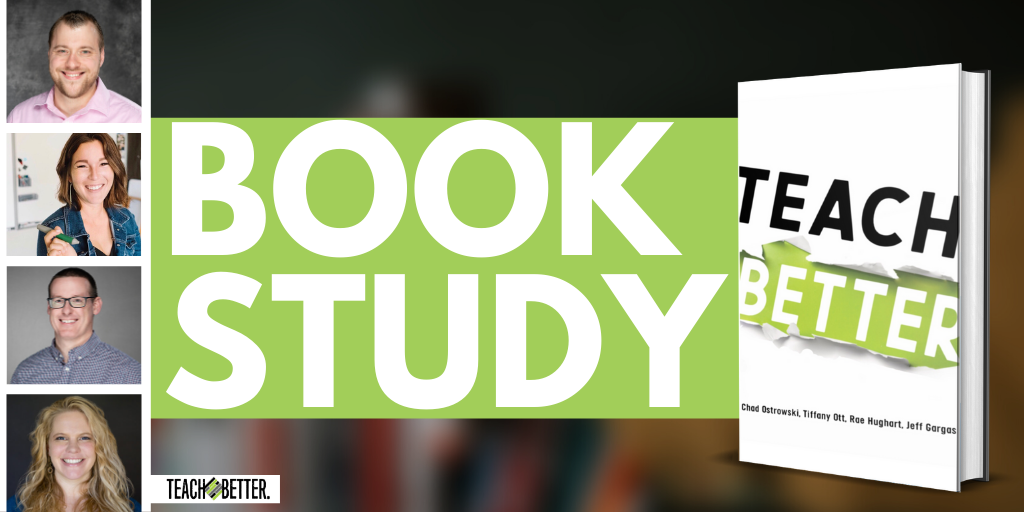TL;DR:
- The myth is that a “good teacher” is defined by the number of hours one works or how much money they spend.
- Instead, a “good teacher” should be defined as someone who builds connections with and empowers students.
I’ve been teaching since 2012. And I’ve always wanted to be great. I always wanted to be better than the best. I wanted the level of my instruction and rapport with students to exceed my level of experience. I’d spend hours planning and locating resources to prove myself worthy of the “good teacher” reputation.
I wanted to be noticed for the time I spent planning. I wanted my peers to think, “wow she’s a good teacher.” Eventually, though, I realized that the “good teacher” narrative that I believed for so long is a lie.
Here’s the thing.
Before we set foot in our own classrooms, we already have ideas about what it takes to be a good teacher.
Some of these ideas stem from personal experiences, while other ideas are based on what we see in the media. Still, much of what we believe about good teaching is perpetuated during our teacher training and reinforced during the early years of our careers. The “good teacher” narrative is pervasive. It accounts for why so many teachers burn out and ultimately leave the classroom.
Many teachers buy into the myth that we can only show we really care - that we are truly committed - if we consume ourselves in our work. In doing so, we forsake all the other parts of ourselves that make us who we are. Click To TweetAll of us want to be effective teachers. We want student engagement. We want student achievement to reflect all our efforts.
To meet these expectations, we spend hours planning dynamic lessons to inspire learners. We create the perfect classroom environment for our students. We set up small group instruction with differentiated activities for each group.
And we spend money purchasing accessories for classroom transformations that immerse students in academic experiences. We design instruction that is student-centered and facilitates critical thinking. Sometimes, we even sacrifice authentic instruction for methodologies that don’t fit our teaching styles.
I’ve known teachers who changed who they were or worked themselves into the ground because “that’s just what good teachers do.”
So many teachers buy into the myth that we can only show we really care—that we are truly committed—if we consume ourselves in our work. In doing so, we forsake all the other parts of ourselves that make us who we are.
I know the truth, though.
And the truth…at least some of it lies in our willingness to invest in our well-being.
When we invest in ourselves, we begin to consider how we can be our best. Then, we can operate at full capacity as our whole selves (not just our teacher selves). Self-care is vital to our work as teachers because full cups mean we can pour out our best for our students. Full cups also mean our families and friends get more than “left overs” after we’ve given everything to our students.
Most of all though, self-care means that we can return to our classrooms each day with renewed energy and focus on what’s truly important.
We will be happier people overall and consequently better teachers.
Our understanding of what makes a good teacher cannot be relegated to platitudes that often negate the fact that we are spouses, parents, sisters, brothers, friends, etc.
If we reject the narrative that good teachers must sacrifice their wholeness for sake of the profession, then we will see that:
A “good teacher” is not measured by:
- student achievement on standardized tests.
- the number of hours s/he spends on the work.
- how much of themselves they lose in their work.
A “good teacher” is measured by:
- the ways s/he stimulates authentic conversations with students.
- how vulnerable s/he is with students.
- the ways s/he shows empathy and builds connections with students.
- the way that he/she empowers students.
For me, these are just a few of the measures that most reflect good teaching.
The measures that matter most in the long run, anyway.
For those of you striving to be “good teachers,” reject the notion that you must sacrifice everything to show that you really care. Debunk the notion that your self-care means you are not truly committed to your role as a teacher.
I challenge you to invest in yourself. You’ll find that everyone benefits when your cup is filled.
Love,
Alexis Shepard aka The AfroEducator
About Alexis Shepard
Alexis Shepard is a 9th year middle school teacher in Upstate, South Carolina with both middle level and elementary experience. After multiple encounters with burn-out, a desire to take steps towards self-care led to the creation of her brand, The AfroEducator. Originally intended to facilitate connections with likeminded educators, a passion was ignited in Alexis to empower teachers towards wellness.
In her work, Alexis seeks to create pervasive perceptions of wellness that will improve teacher outlook and sustainability. She champions teacher self-care through education, reflection, and dialogue. Alexis believes that by sharing stories, she can inspire and empower teachers to take control of their own narratives so that they can teach and live with joy.




